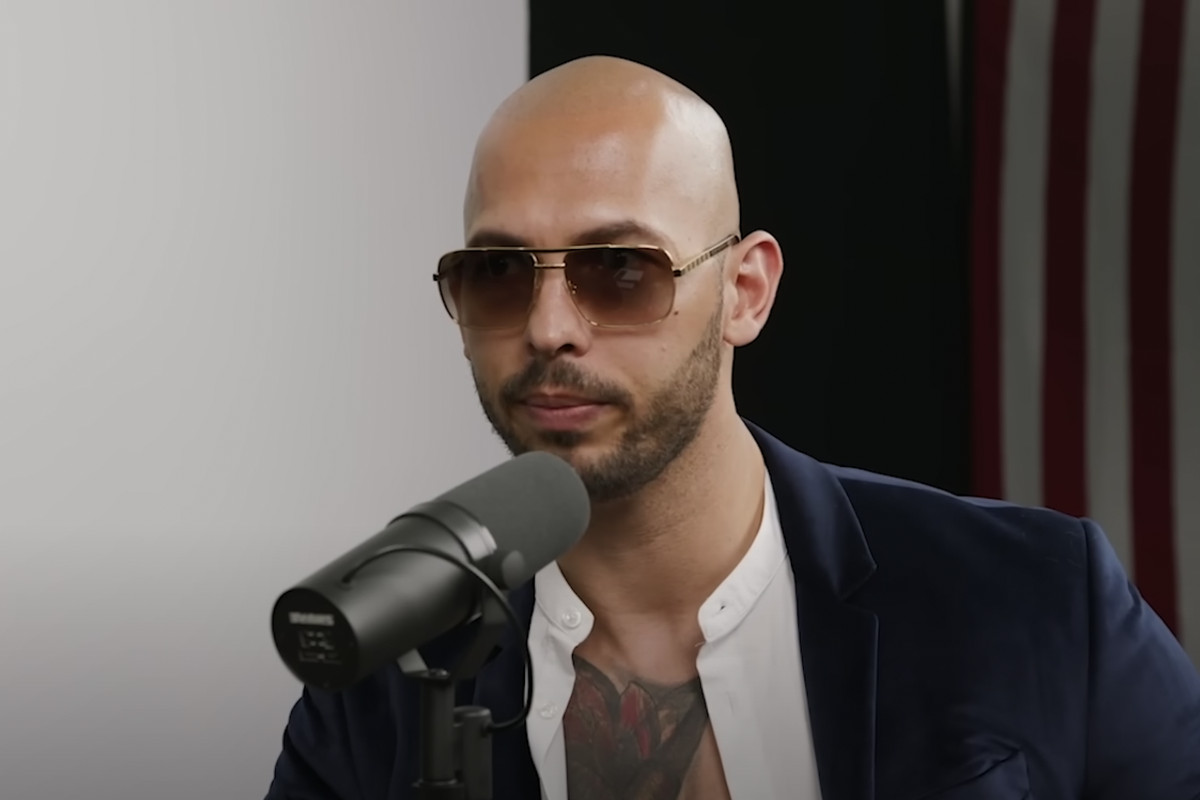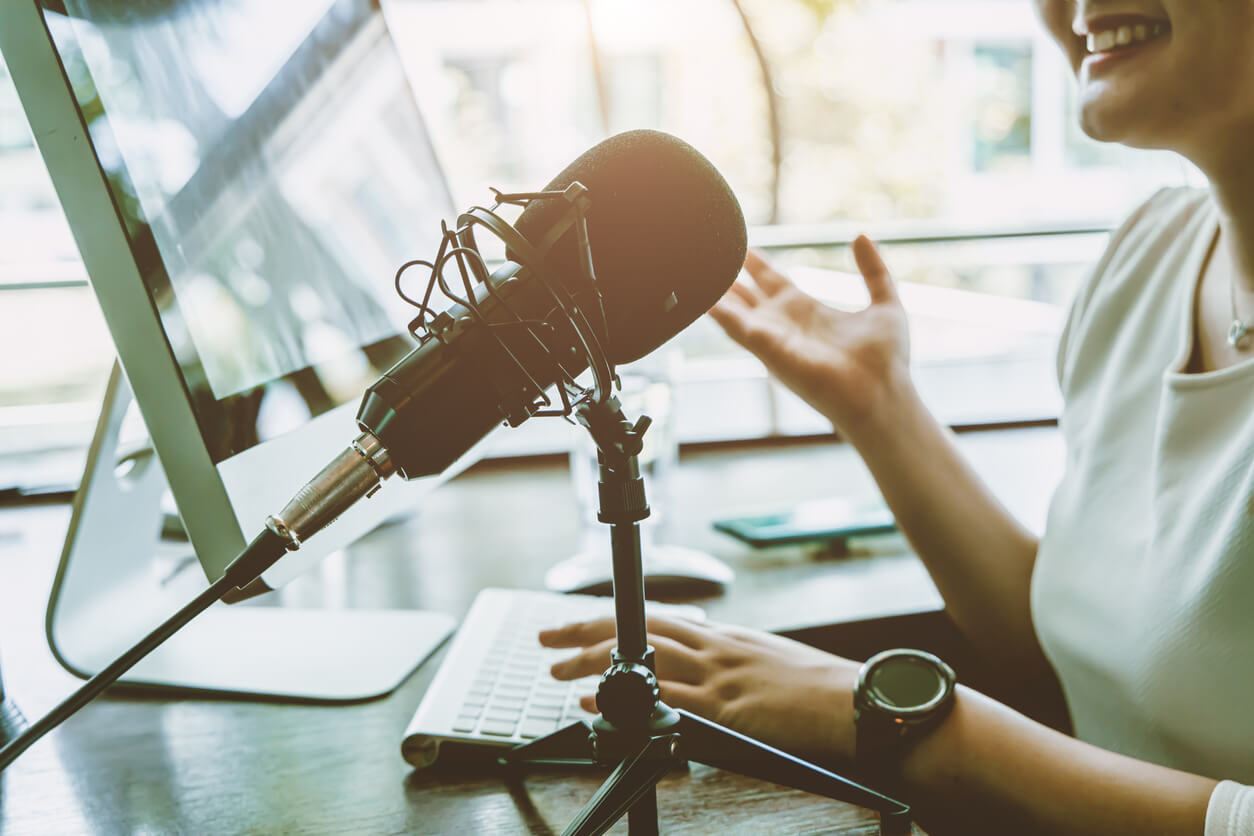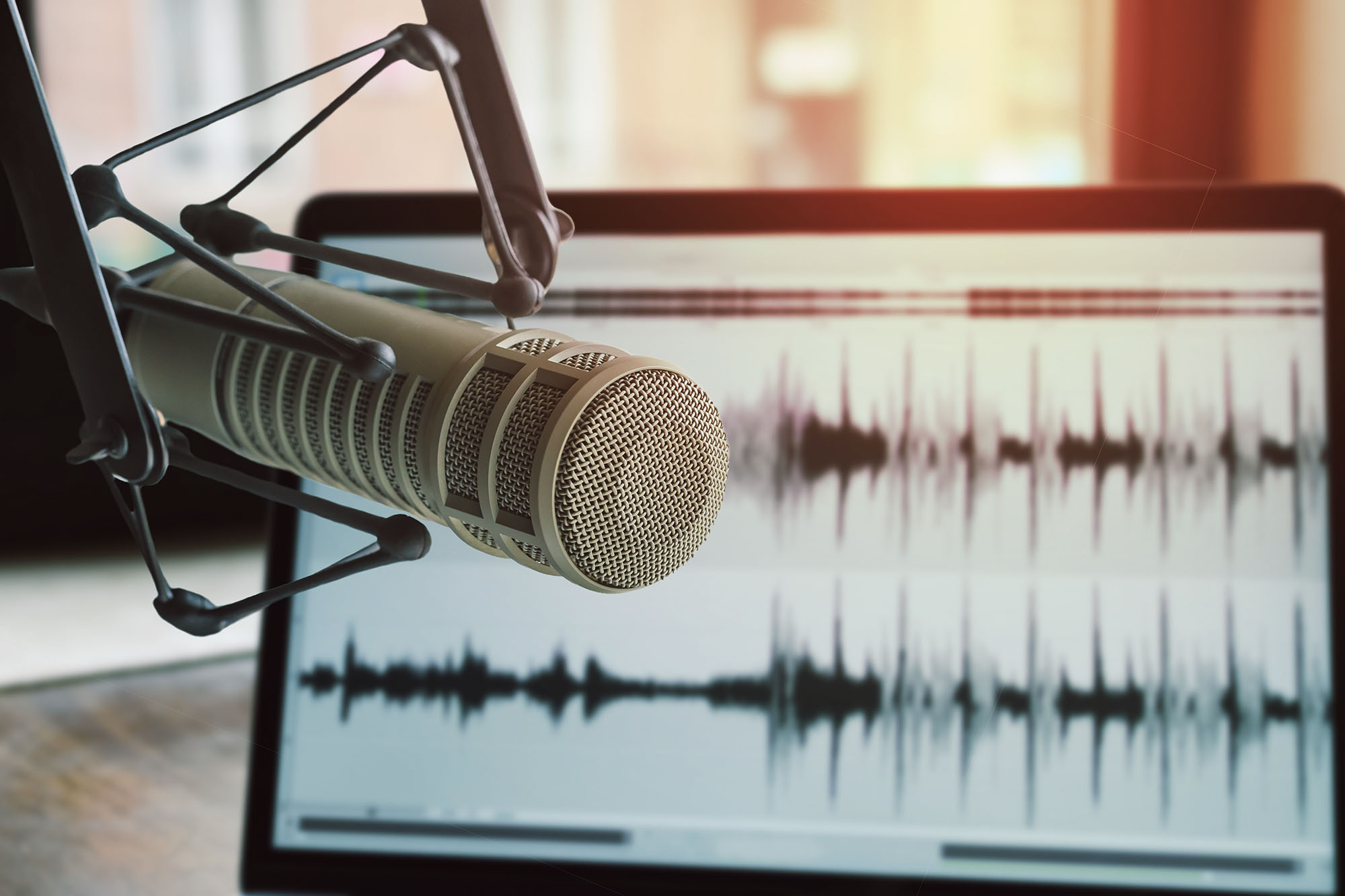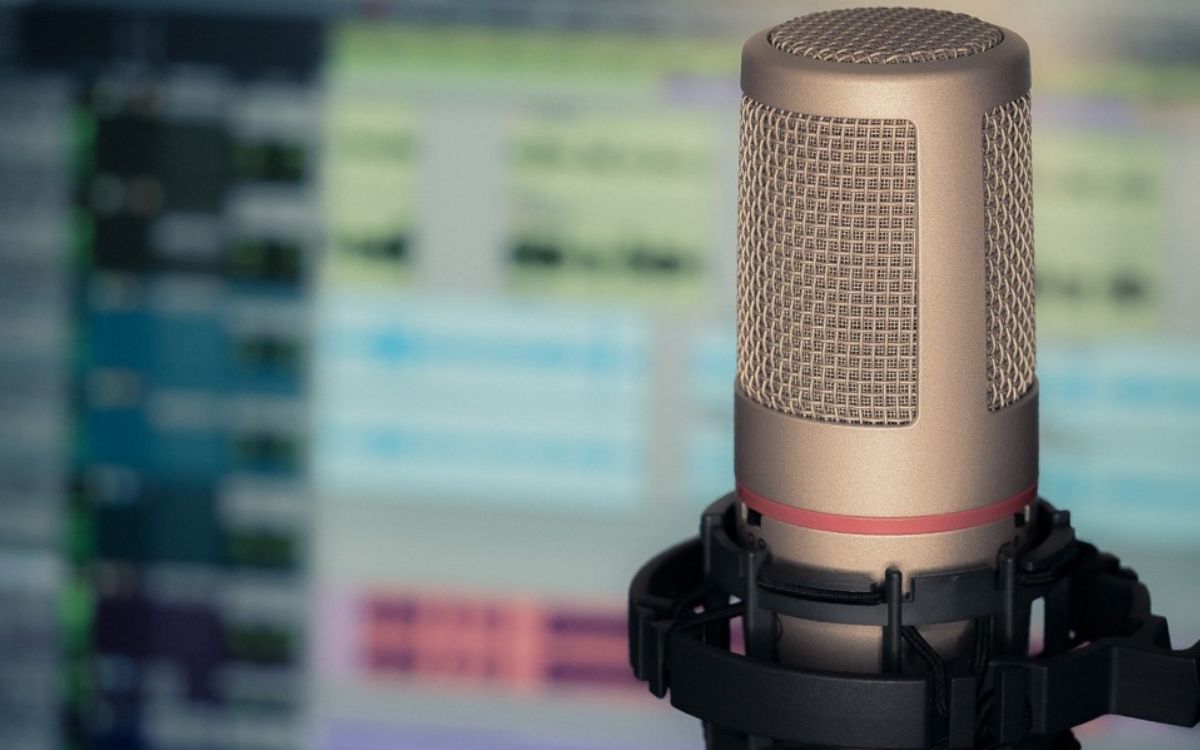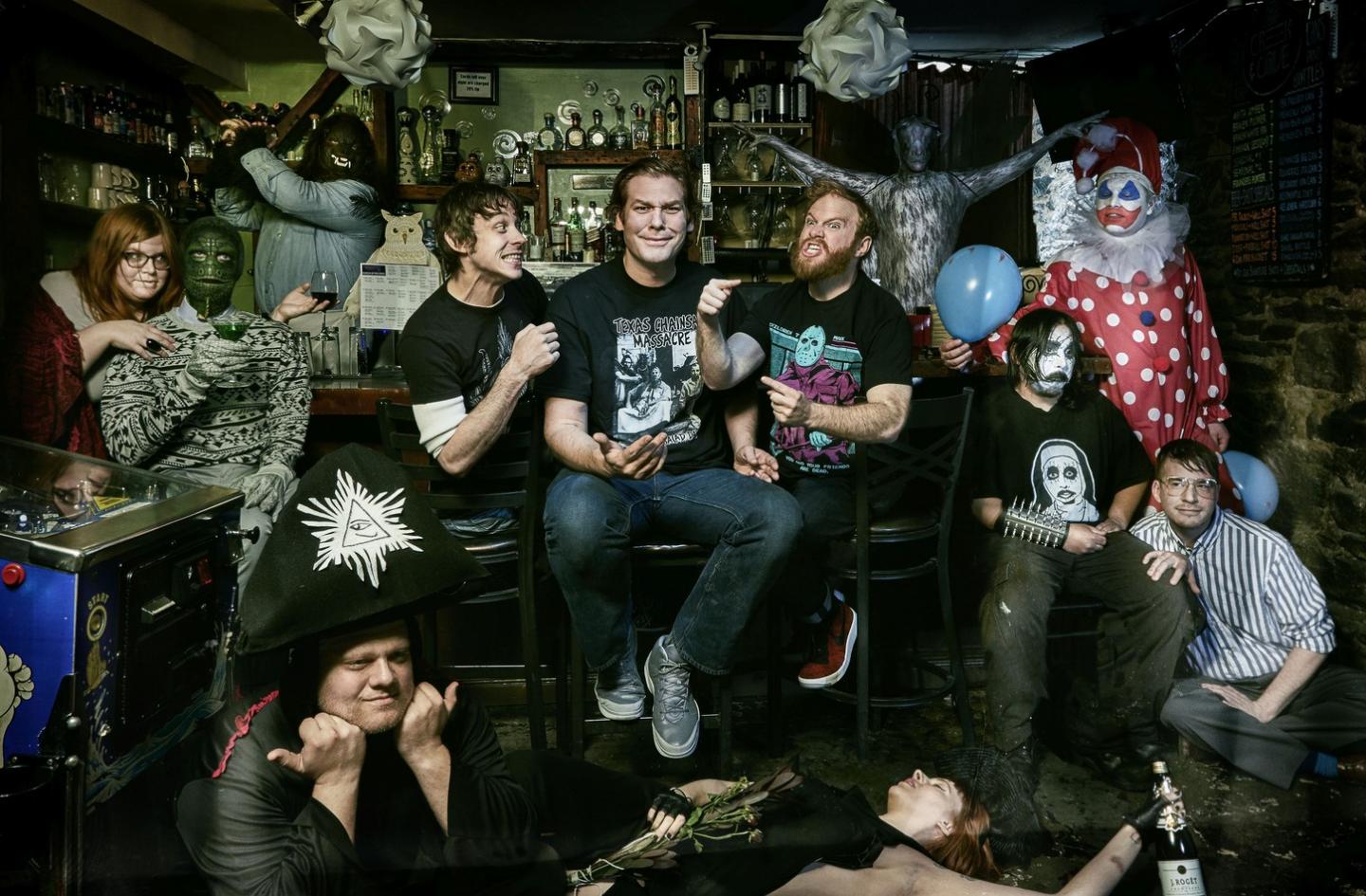Home>Events & Info>Podcast>What Is A Podcast
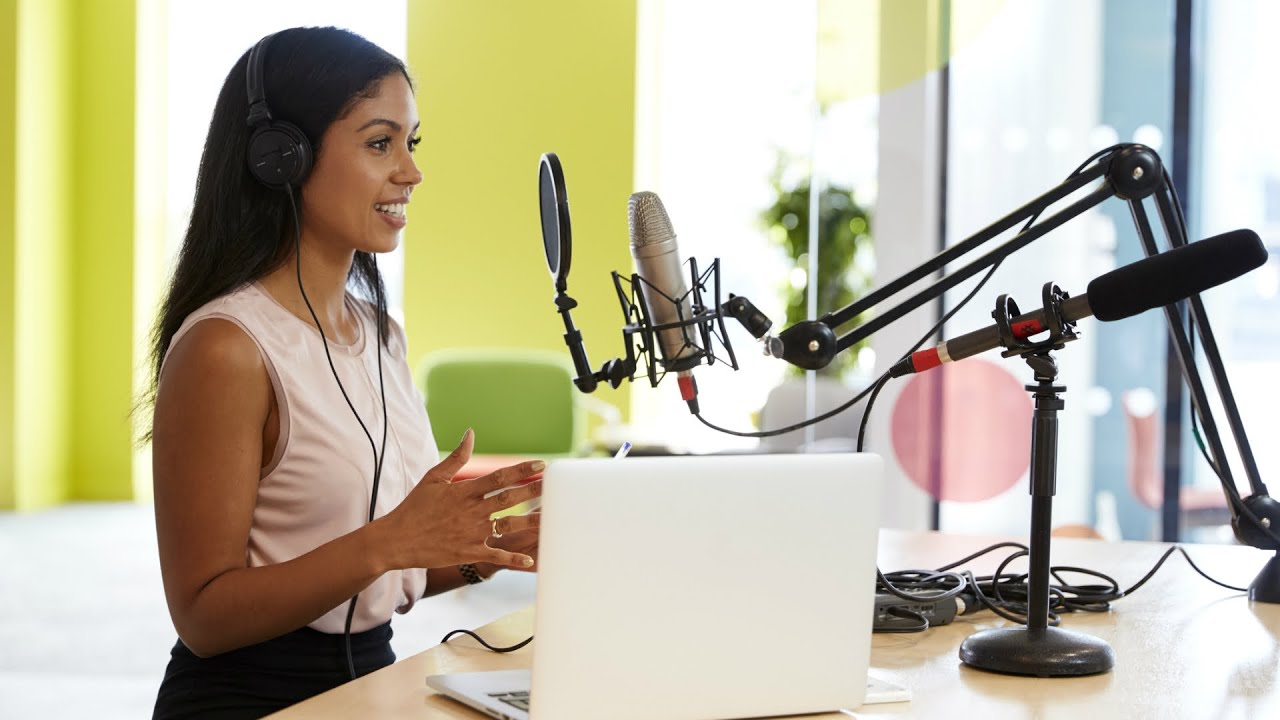

Podcast
What Is A Podcast
Modified: February 17, 2024
Discover what a podcast is and how it can enhance your listening experience. Explore different genres and find your new favorite podcast today!
(Many of the links in this article redirect to a specific reviewed product. Your purchase of these products through affiliate links helps to generate commission for AudioLover.com, at no extra cost. Learn more)
Table of Contents
Introduction
Welcome to the exciting world of podcasts! In this increasingly digital age, podcasts have become a popular form of entertainment, information, and storytelling. Whether you’re looking to stay up-to-date with the latest news, deepen your knowledge in a particular field, or simply be entertained on your daily commute, podcasts have something for everyone.
So, what exactly is a podcast? At its core, a podcast is an audio-based medium that allows individuals or organizations to create and distribute their own content. Think of it as an on-demand radio show that you can listen to anytime and anywhere. The beauty of podcasts is that they cater to all sorts of interests, whether it’s true crime, sports, entrepreneurship, science, or personal development.
The rise of podcasts can be attributed to several factors. Firstly, they offer a convenient and accessible way to consume content. With smartphones and digital devices becoming ubiquitous, you can easily stream or download podcasts with just a few taps. Secondly, podcasts provide a unique and intimate listening experience. Unlike other mediums, such as TV or written articles, podcasts allow hosts to connect with their audience through their voice, creating a sense of authenticity and connection.
Furthermore, podcasts are incredibly diverse in their format and content. From interviews and panel discussions to storytelling and investigative reporting, there’s a podcast out there for every taste. Whether you prefer short episodes for quick bursts of information or long-form conversations to delve deep into a topic, the podcasting world has it all.
This article aims to provide you with a comprehensive understanding of podcasts, including their definition, history, functionality, benefits, and tips for starting your own podcast. So sit back, relax, and get ready to embark on an audio journey like no other. Whether you’re a seasoned podcast listener or new to the world of podcasts, there’s always something new and exciting waiting for you.
Definition of a Podcast
Before diving deeper into the world of podcasts, let’s start with a clear definition of what a podcast actually is. At its core, a podcast is a digital audio or video file that is available for streaming or downloading on the internet.
Unlike traditional radio or television broadcasts, podcasts are on-demand and can be accessed at any time, allowing listeners to choose when and where they want to engage with the content. This flexibility is what sets podcasts apart and contributes to their growing popularity.
Podcasts typically follow a series format, with multiple episodes released on a regular basis. These episodes can range in length, from a few minutes to several hours, depending on the content and style of the podcast. Listeners can subscribe to their favorite podcasts, ensuring they receive automatic updates whenever a new episode is released.
The content of podcasts is as diverse as the creators behind them. Podcasts cover an extensive range of topics, from news and current events to true crime, comedy, self-improvement, storytelling, and everything in between. There’s something for everyone, no matter your interests or hobbies.
One of the key features of podcasts is their accessibility. Podcasts can be listened to on various devices, including smartphones, tablets, computers, and smart speakers. Most podcasts are available on popular streaming platforms such as Apple Podcasts, Spotify, Google Podcasts, and Stitcher, making it easy to find and subscribe to your favorite shows.
It’s important to note that podcasts are not limited to audio content. Video podcasts, also known as vodcasts or video casts, are becoming increasingly popular as well. These podcasts provide a visual element to complement the audio, offering a more immersive and dynamic experience for viewers.
Overall, podcasts have revolutionized the way we consume media and information. They give individuals and organizations a platform to share their thoughts, stories, and expertise with a global audience. Whether you’re on a road trip, working out at the gym, or simply relaxing at home, podcasts provide a convenient and engaging way to learn, be entertained, and stay connected with the world around us.
History of Podcasting
The history of podcasting can be traced back to the early 2000s, when the term “podcast” was first coined by journalist Ben Hammersley in an article for The Guardian. However, the concept of distributing audio files online had been around for several years before that.
The origins of podcasting can be attributed to the emergence of portable media players, particularly the iPod, developed by Apple Inc. Released in 2001, the iPod revolutionized the way people could listen to music on the go. With its large storage capacity and easy synchronization with iTunes, the iPod made it possible for individuals to carry their entire music library in their pocket.
One of the key innovators in the podcasting space was former MTV VJ Adam Curry and software developer Dave Winer. In 2004, they collaborated to create a system that would allow users to automatically download and sync audio files to their iPods, thus giving birth to what we now know as podcasting. This system utilized Really Simple Syndication (RSS) technology, which enabled content creators to distribute their audio files and listeners to subscribe and receive automatic updates.
The term “podcasting” was coined as a combination of “iPod” and “broadcasting,” highlighting the connection to portable media players and the idea of creating one’s own broadcast-style content.
In the early years, podcasting gained traction primarily within the tech community and among early adopters. However, with the release of iTunes 4.9 in 2005, which included a dedicated podcasting section, podcasting gained mainstream attention. This move by Apple gave podcasts a centralized platform for discovery and easy accessibility to a wider audience.
As podcasting grew in popularity, a wide range of individuals, organizations, and media outlets started creating and distributing podcasts. This led to the proliferation of diverse content and the emergence of various podcast genres, including comedy, news, true crime, storytelling, educational, and more.
With the advent of smartphones and the increasing accessibility of internet connections, podcast consumption soared. According to a 2021 survey by Edison Research, over half of the U.S. population aged 12 and older has listened to a podcast, with millions of podcast episodes available on different platforms.
Today, podcasting continues to evolve and thrive, with new technologies and platforms continually emerging. The popularity of podcasting as a form of entertainment and information sharing demonstrates its staying power and its ability to adapt to changing media consumption habits.
How Podcasts Work
Have you ever wondered how podcasts work? While the concept of podcasting may seem complex, the process of creating and distributing podcasts is surprisingly straightforward.
At its core, a podcast consists of audio or video files that are available for streaming or download on the internet. These files are hosted on a server or podcast hosting platform and can be accessed by listeners through various podcast apps or streaming platforms.
The podcasting process begins with content creation. Content creators, also known as podcasters, use audio recording equipment to record their episodes. This can range from a simple setup, such as a microphone and recording software, to more professional setups with mixing boards and soundproofing equipment. The quality of the recording can greatly impact the overall listening experience, so podcasters strive to ensure clear audio.
Once the episode is recorded and edited, it is ready for distribution. Podcasters upload their audio files to a podcast hosting platform. This platform provides storage, bandwidth, and distribution capabilities for the podcast. Some popular podcast hosting platforms include Libsyn, Anchor, Buzzsprout, and Podbean.
The podcast hosting platform generates a unique RSS feed for each podcast. RSS stands for Really Simple Syndication and is a technology that allows for the automatic distribution of content. The RSS feed contains information about the podcast, including the title, description, episode titles, and file URLs.
After the podcast is hosted and the RSS feed is generated, podcasters submit their podcast to various podcast directories and platforms. These directories, such as Apple Podcasts, Spotify, Google Podcasts, and Stitcher, act as search engines for podcasts, allowing listeners to discover and subscribe to new shows.
Once a listener subscribes to a podcast, their podcast app or streaming platform regularly checks for updates in the RSS feed. When a new episode is released, the app automatically downloads or streams it, making it available to the listener. This automated process ensures that listeners receive the latest episodes without manually searching for them.
The beauty of podcasts is their accessibility. They can be listened to on a wide range of devices, including smartphones, tablets, computers, smart speakers, and even in-car entertainment systems. Listeners can choose to stream episodes directly or download them for offline listening.
It’s important to note that podcasts are not limited to just audio. Video podcasts, also known as vodcasts, follow a similar process but include video content. These video podcasts provide a visual element, allowing viewers to see the hosts or additional visual aids while listening to the audio portion.
Overall, podcasts have revolutionized the way we consume audio and video content. The simplicity and convenience of podcasting have made it a popular medium for both content creators and listeners alike. So the next time you tune in to your favorite podcast, take a moment to appreciate the behind-the-scenes process that brings those episodes to your ears.
Benefits and Uses of Podcasts
Podcasts offer a wide range of benefits and uses for both content creators and listeners. Let’s explore some of the key advantages of podcasts and how they can enhance your life.
1. Convenience and Accessibility: One of the primary benefits of podcasts is their convenience. Unlike other media forms, podcasts can be listened to anytime, anywhere. Whether you’re commuting, exercising, or doing household chores, you can tune in to a podcast and make the most of your time.
2. Deep Dive into Topics: Podcasts allow for in-depth exploration of specific topics. Whether you’re interested in history, science, personal development, or any other niche, there’s likely a podcast dedicated to it. Podcast hosts often bring on experts and thought leaders, providing insights and perspectives that can expand your knowledge and understanding.
3. Entertainment and Storytelling: Podcasts offer a captivating form of entertainment through storytelling. From true crime mysteries to fictional dramas, podcasts can transport you to different worlds and keep you engaged and entertained.
4. Learning on the Go: Podcasts are a fantastic tool for continuous learning. You can find educational podcasts on a wide range of subjects, including history, science, business, language learning, and more. This allows you to enhance your knowledge and skills while on the go.
5. Driving Brand Awareness: For businesses and organizations, podcasts provide a unique opportunity to create brand awareness and establish thought leadership. Sharing valuable insights and expertise through a podcast can help build credibility and reach a wider audience.
6. Building a Community: Podcasts have a way of creating a sense of community among listeners. By providing valuable content and fostering conversations, podcasters can connect with their audience and build a loyal community of listeners.
7. Alternative Advertising Channel: Advertising on podcasts has become increasingly popular. Brands can reach their target audience through podcast sponsorships or ad placements, leveraging the trust and engagement that podcast hosts have established with their listeners.
8. Opportunity for Personal Expression: Podcasting allows individuals to express their creativity and share their unique perspectives with the world. Whether it’s hosting an interview-based show, sharing personal stories, or discussing niche interests, podcasts offer a platform for self-expression.
9. Empathy and Connection: The intimate nature of podcasting, with its spoken word format, can foster a sense of empathy and connection. Listeners often feel a personal connection to podcast hosts, creating a more engaging and relatable experience.
10. Mindfulness and Relaxation: Podcasts can also serve as a form of relaxation and mindfulness. From guided meditation and sleep stories to calming music and ASMR, there are podcasts specifically designed to help you unwind and find moments of peace.
These are just a few of the many benefits and uses of podcasts. Whether you’re seeking entertainment, education, personal growth, or a way to connect with like-minded individuals, podcasts offer a treasure trove of content and opportunities. So grab your headphones and get ready to explore the diverse world of podcasts.
Popular Podcast Genres
Podcasts come in a wide variety of genres, catering to different interests and preferences. Whether you’re a fan of true crime, comedy, or self-improvement, there’s a podcast out there for you. Let’s explore some of the most popular podcast genres:
1. True Crime: True crime podcasts have gained immense popularity in recent years. These podcasts delve into real-life crimes, mysteries, and cold cases, offering a deep dive into the criminal mind and the intricacies of the justice system.
2. Comedy: Comedy podcasts provide a dose of laughter and entertainment. From conversational humor to scripted comedy sketches, these podcasts feature comedians sharing their witty observations, funny stories, and hilarious banter.
3. News and Politics: News and politics podcasts keep you informed about current events, world affairs, and political analysis. These podcasts provide in-depth discussions, interviews, and insights on a wide range of topics, helping you stay updated and understand the latest news.
4. Business and Entrepreneurship: Business and entrepreneurship podcasts offer valuable insights for aspiring entrepreneurs, small business owners, and professionals. These podcasts feature interviews with successful business leaders and provide tips, strategies, and inspiration for achieving professional growth and success.
5. Personal Development: Personal development podcasts focus on self-improvement and personal growth. They cover topics such as mindfulness, motivation, productivity, relationships, and mental health, providing guidance and practical tools to enhance various aspects of life.
6. Technology and Science: Technology and science podcasts explore the latest advancements, discoveries, and trends in the world of technology and science. These podcasts offer explanations of complex concepts in an accessible manner and discuss the impact of technology on society.
7. Interviews: Interview-based podcasts feature conversations with a wide range of guests, including celebrities, experts, and thought leaders. These podcasts provide a platform for in-depth discussions, allowing listeners to gain insights and perspectives from different fields of interest.
8. Storytelling: Storytelling podcasts captivate listeners with engaging narratives and compelling storytelling techniques. These podcasts cover a variety of genres, including fiction, non-fiction, personal stories, folklore, and historical events.
9. Health and Wellness: Health and wellness podcasts cover topics related to physical and mental well-being. From fitness and nutrition to meditation and holistic healing, these podcasts offer advice, tips, and inspiration for leading a healthy and balanced lifestyle.
10. History: History podcasts explore the fascinating stories behind significant events, eras, and figures from the past. These podcasts provide historical context, shedding light on lesser-known events and offering a broader understanding of our shared history.
These are just a few of the popular podcast genres, and the range of options is constantly expanding. Whether you want to be entertained, educated, or inspired, there’s a podcast genre that caters to your interests. So, take a leap into the podcasting world and discover the genres that resonate with you!
How to Start Your Own Podcast
Starting your own podcast is an exciting and rewarding endeavor. Whether you have a unique idea to share or a passion for a specific topic, podcasting allows you to create and distribute your own content to a global audience. Here are the essential steps to get started:
1. Define Your Podcast Concept: Determine the focus and format of your podcast. What will be the main theme or subject? Will it be an interview-style show or a solo-hosted podcast? Clarify your target audience and what value you aim to provide to them.
2. Plan Your Episodes: Create an outline for your episodes. Decide on the topics you want to cover and any potential guests you may want to invite. Having a clear plan will ensure a consistent and organized podcasting journey.
3. Invest in Equipment and Software: Purchase the necessary equipment for recording high-quality audio. This typically includes a good microphone, headphones, and audio editing software. There are various options available to suit different budgets and needs.
4. Record and Edit Your Episodes: Set up a quiet recording space and start recording your episodes. Make sure to speak clearly and engage your audience throughout. After recording, edit your episodes to remove any mistakes or unnecessary sections, ensuring a smooth listening experience.
5. Create Engaging Artwork and Music: Design eye-catching artwork for your podcast cover using graphic design tools or hiring a professional designer. Additionally, consider adding intro and outro music to enhance the overall production value of your podcast.
6. Choose a Podcast Hosting Platform: Select a podcast hosting platform that suits your needs. These platforms provide storage, generate your podcast’s RSS feed, and distribute your episodes to various podcast directories and apps. Popular hosting platforms include Anchor, Libsyn, Buzzsprout, and Podbean.
7. Submit Your Podcast to Directories: Submit your podcast to popular directories like Apple Podcasts, Spotify, Google Podcasts, and Stitcher. These directories make your podcast discoverable to a broader audience.
8. Promote Your Podcast: Utilize social media, your website, and other online platforms to promote your podcast. Encourage listeners to subscribe and leave reviews to increase your podcast’s visibility and attract more audience members.
9. Consistency is Key: Maintain a regular release schedule to engage your audience and build a loyal following. Whether it’s weekly, bi-weekly, or monthly episodes, stick to a consistent routine that your listeners can rely on.
10. Engage with Your Audience: Interact with your listeners through comments, emails, or social media. Encourage feedback, suggestions, and questions to foster a sense of community and develop a deeper connection with your audience.
Starting a podcast can be a fulfilling creative outlet, and with dedication, it has the potential to grow into something incredible. Remember to embrace the learning process and continuously improve your skills. So, grab your microphone, let your passion shine, and embark on your podcasting journey!
Podcasting Equipment and Software
When it comes to podcasting, having the right equipment and software is crucial to ensure high-quality audio production. While you don’t need to break the bank, investing in a few key items can significantly improve the overall sound of your podcast. Here are the essential components you’ll need:
1. Microphone: The microphone is perhaps the most important piece of equipment for podcasting. It’s recommended to use a USB or XLR microphone to capture clear and professional-sounding audio. Popular options include the Audio-Technica ATR2100x-USB, Blue Yeti, and Rode NT-USB.
2. Headphones: A good pair of closed-back headphones is essential to monitor your recording and listen for any audio issues. Look for headphones that provide clear and accurate sound reproduction. Sennheiser HD 280 Pro, Audio-Technica ATH-M50x, and Sony MDR-7506 are popular choices among podcasters.
3. Pop Filter: A pop filter is a screen that is placed in front of the microphone to minimize plosive sounds (such as the “p” and “b” sounds) that can distort the audio. It helps in producing cleaner and smoother recordings. The Aokeo Professional Microphone Pop Filter is a popular option.
4. Boom Arm or Mic Stand: A boom arm or mic stand allows you to position your microphone at the optimal height and distance. It helps reduce handling noise and allows for greater flexibility during recording. The Heil Sound PL-2T Overhead Broadcast Boom and the Neewer Microphone Suspension Boom Scissor Arm Stand are frequently used options.
5. Audio Interface: If you’re using an XLR microphone, you will need an audio interface to connect your microphone to your computer. This device converts the analog signal from the microphone to a digital format that your computer can process. The Focusrite Scarlett 2i2 and PreSonus AudioBox USB are popular audio interfaces among podcasters.
6. Pop-up Reflection Filter: A pop-up reflection filter, also known as a portable vocal booth, helps reduce room reflections and echo, resulting in a cleaner and more professional-sounding voice recording. The Aston Microphones Halo and the SE Electronics Reflexion Filter are commonly used options.
7. Audio Editing Software: To edit your podcast episodes, you will need audio editing software. Popular choices include Adobe Audition, Audacity (free), GarageBand (for Mac users), and Reaper. These software programs allow you to edit, trim, add music, and enhance the quality of your recordings.
8. Call Recording Software: If you plan to conduct remote interviews or podcast co-hosting, call recording software is essential. Tools like Zoom, Skype, Zencastr, and SquadCast provide the ability to record high-quality audio conversations over the internet.
Remember, while high-quality equipment can enhance your podcasting experience, the content and engagement are ultimately what will captivate your audience. Focus on creating compelling content and honing your communication skills, and the equipment will help amplify your message.
Podcast Hosting and Distribution Platforms
Once you’ve recorded and edited your podcast episodes, the next step is to find a podcast hosting and distribution platform. These platforms handle the storage, delivery, and syndication of your podcast to various podcast directories and apps. Here are some popular podcast hosting platforms to consider:
1. Anchor: Anchor is a free podcast hosting platform that provides a user-friendly interface for beginners. It offers unlimited storage, easy episode distribution to major podcast directories, and monetization options through sponsorships and listener support.
2. Libsyn: Libsyn (short for Liberated Syndication) is one of the oldest and most renowned podcast hosting platforms. It offers reliable hosting services, advanced analytics, customizable show websites, multiple pricing plans based on storage needs, and integration with popular podcasting apps.
3. Buzzsprout: Buzzsprout focuses on simplicity and ease of use. It offers easy upload and distribution of podcast episodes, along with useful features like a website builder, episode transcription, and podcast statistics. Buzzsprout has various plans based on monthly upload hours.
4. Podbean: Podbean is a comprehensive platform that offers podcast hosting, distribution, and monetization features. It provides unlimited storage and bandwidth, customizable podcast websites, embeddable players, advanced analytics, and the ability to monetize through advertising and crowdfunding.
5. Blubrry: Blubrry is another popular podcast hosting platform known for its robust features and industry expertise. It offers multiple media hosting plans, WordPress integration, tagging and categorization options, detailed analytics, and monetization opportunities through advertising networks.
6. Spreaker: Spreaker combines podcast hosting with a live broadcasting platform. It allows you to record and stream live episodes, engage with your audience through chat, and provides podcast distribution to major directories. Spreaker offers different plans with varying storage and streaming options.
7. SoundCloud: While SoundCloud is primarily known as a platform for music sharing, it also supports podcast hosting. It offers a simple and user-friendly interface, the ability to share episodes on social media, and integration with various podcast directories.
When choosing a hosting platform, consider factors such as ease of use, pricing, storage limitations, analytics, monetization options, and integration with podcast directories. Evaluate different platforms based on your specific needs and budget to find the best fit for your podcast.
Keep in mind that while hosting platforms handle the distribution of your podcast to directories, it’s essential to manually submit your podcast to popular directories like Apple Podcasts, Spotify, Google Podcasts, and Stitcher. This ensures maximum visibility and reach for your podcast.
Remember to regularly check and update your podcast hosting account, as well as monitor your analytics to gain insights into your audience and their listening behaviors. With the right hosting platform, you can efficiently manage your podcast and focus on creating engaging content for your listeners.
Monetizing Your Podcast
Podcasting offers various opportunities for monetization, allowing content creators to turn their passion into a source of income. While podcast monetization requires dedication and strategic planning, it can be a rewarding venture. Here are some common ways to monetize your podcast:
1. Advertising and Sponsorships: Advertising is one of the most popular methods of monetization for podcasts. By partnering with brands relevant to your podcast’s niche, you can feature sponsored ads or endorsements within your episodes. This can be done through dynamic ad insertion or host-read ad spots.
2. Listener Support: Some podcasters rely on their dedicated audience for financial support. Platforms like Patreon allow listeners to contribute a set monthly amount or make one-time donations to support your podcast. In return, you can offer exclusive bonus content, merchandise, or early access to episodes to incentivize support.
3. Creating Merchandise: If your podcast has a strong and engaged following, you can consider selling merchandise such as t-shirts, mugs, or stickers featuring your podcast’s logo or catchphrases. Online platforms like Teespring or Printful can help you create and sell custom merchandise without the need for inventory.
4. Events and Live Shows: Organizing live podcast events or shows can be a great way to monetize your podcast. By charging admission or offering VIP experiences, you can generate revenue while engaging directly with your audience. Live shows can also help expand your reach and attract new listeners.
5. Affiliate Marketing: An affiliate marketing strategy involves promoting products or services on your podcast, and earning a commission when your listeners make a purchase through your unique affiliate link. Partnering with affiliate programs or networks can be a lucrative way to monetize your podcast.
6. Courses or Consulting: If you have valuable knowledge or expertise related to your podcast’s niche, you can offer online courses, workshops, or consulting services. This allows you to provide in-depth guidance to your listeners and monetize your expertise outside of the podcast itself.
7. Crowdfunding: Platforms like Kickstarter or Indiegogo allow podcasters to crowdfund their projects by setting goals and offering rewards to backers. By convincing your audience of the value of your podcast, you can seek financial support to cover production costs or improve the overall quality of your show.
When considering monetization strategies, it’s essential to strike a balance between generating revenue and maintaining the integrity of your podcast. Transparency and authenticity are key; be open with your audience about your monetization efforts and ensure that your partnerships align with your values and the interests of your listeners.
Additionally, consistently provide valuable content and engage with your audience to build a loyal community. A strong listener base will attract advertisers and sponsors, making monetization opportunities more enticing.
Remember, podcast monetization takes time and effort. It’s crucial to be patient, continually evaluate your strategies, and adjust them based on listener feedback and market trends. By diversifying your monetization methods and experimenting with different approaches, you can create a sustainable income stream while delivering valuable content to your audience.
Podcasting Tips and Best Practices
Creating a successful podcast involves more than just recording and uploading episodes. To stand out in the competitive podcasting landscape, it’s essential to follow some key tips and best practices. Here are some valuable pointers to consider:
1. Define Your Target Audience: Clearly identify your target audience and tailor your content to their interests. Understanding your audience’s preferences, pain points, and desires will help you create episodes that resonate with them.
2. Plan and Structure Your Episodes: Create a cohesive structure for each episode. Outline your content, ensure a logical flow, and set clear objectives. This helps keep your episodes focused and engaging.
3. Invest in Audio Quality: Good audio quality is essential for a professional-sounding podcast. Invest in a quality microphone, use a quiet recording environment, and ensure proper post-production editing to deliver a pleasant listening experience.
4. Be Authentic and Engaging: Develop your unique podcasting style and be yourself. Authenticity builds trust and connection with your audience. Use storytelling, humor, and conversational language to engage your listeners and keep them coming back for more.
5. Consistency is Key: Stick to a consistent release schedule to establish expectations with your audience. Whether it’s weekly, bi-weekly, or monthly episodes, consistency helps retain listeners and build loyalty.
6. Embrace Guest Interviews: Inviting guests on your podcast can bring fresh perspectives and expertise to your episodes. It expands your network, provides valuable insights, and offers more variety for your listeners.
7. Promote Your Podcast: Utilize social media platforms, your website, and online communities to promote your podcast. Engage with your listeners and encourage them to share your episodes, leave reviews, and provide feedback.
8. Engage with Your Audience: Develop a two-way relationship with your audience by soliciting their input and feedback. Respond to comments, questions, and messages to show that you value their participation and appreciate their support.
9. Continuously Learn and Improve: Stay up-to-date with industry trends, listen to other podcasts for inspiration, and seek constructive feedback from your listeners. Strive for continuous improvement by refining your content, format, and delivery.
10. Be Flexible and Adaptive: The podcasting landscape is constantly evolving. Be open to trying new ideas, adapting to changes, and experimenting with different content formats or styles to keep your podcast fresh and engaging.
Remember, building a successful podcast takes time and dedication. Be patient, persistent, and focused on delivering value to your audience. Stay true to your niche, keep refining your craft, and enjoy the journey. With passion and perseverance, your podcast can thrive and make a lasting impact in the podcasting world.
Conclusion
Podcasting has become a powerful and popular medium for sharing ideas, stories, and knowledge with a global audience. Whether you’re a listener seeking entertainment, education, or connection, or a content creator looking to share your passion and expertise, podcasts offer a world of possibilities.
In this article, we explored the definition of podcasts and their evolution from humble beginnings to a mainstream form of media. We covered the benefits and uses of podcasts, from their convenience and accessibility to their ability to deep dive into various topics and engage listeners on a personal level.
We discussed how to start your own podcast, including planning your content, investing in the right equipment and software, and finding the ideal hosting and distribution platform. Additionally, we explored monetization strategies, such as advertising, sponsorships, listener support, and merchandise, to help creators turn their podcasts into sustainable ventures.
We also provided insightful tips and best practices, emphasizing the importance of defining your target audience, maintaining audio quality, staying consistent, and engaging with your listeners. By following these guidelines, you can create a successful podcast and foster a loyal community of listeners.
As you embark on your podcasting journey, remember to focus on your passion, authenticity, and the value you bring to your audience. Continuously learn, experiment, and adapt to the changing podcasting landscape. By staying true to your vision and delivering engaging content, your podcast has the potential to make a lasting impact and connect with listeners around the world.
So, whether you’re a listener or a creator, embrace the world of podcasts and immerse yourself in the incredible stories, conversations, and knowledge that await. Happy podcasting!


